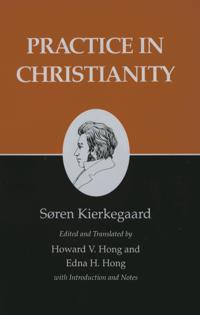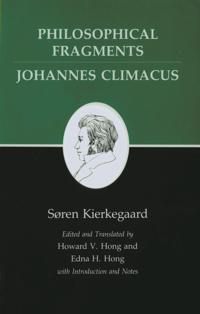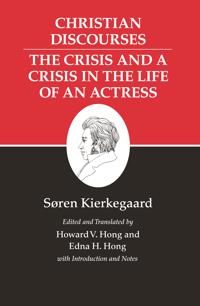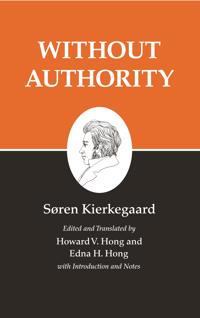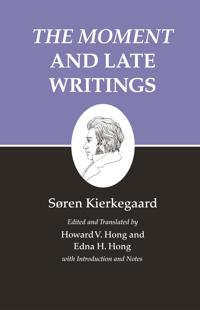Practice in Christianity (Pocket)
avSoren Kierkegaard, Howard V. Hong, Edna Hatlestad (EDT) Hong
ISBN: 9780691020631 - UTGIVEN: 1991-10Of the many works he wrote during 1848, his "richest and most fruitful year," Kierkegaard specified Practice in Christianity as "the most perfect and truest thing." In his reflections on such topics as Christ's invitation to the burdened, the imitatio Christi, the possibility of offense, and the exa[...]
Philosophical Fragments (Pocket)
avSoren Kierkegaard, Edna H. (EDT) Hong, Howard V. (EDT) Hong
ISBN: 9780691020365 - UTGIVEN: 1985-11This volume contains a new translation, with a historical introduction by the translators, of two works written under the pseudonym Johannes Climacus. Through Climacus, Kierkegaard contrasts the paradoxes of Christianity with Greek and modern philosophical thinking. In Philosophical Fragments he beg[...]
Christian Discourses (Pocket)
avSoren Kierkegaard, Howard V. (EDT) Hong, Edna H. (EDT) Hong
ISBN: 9780691140780 - UTGIVEN: 2009-09First published in 1848, Christian Discourses is a quartet of pieces written and arranged in contrasting styles. Parts One and Three, "The Cares of the Pagans" and "Thoughts That Wound from Behind--for Upbuilding," serve as a polemical overture to Kierkegaard's collision with the established order o[...]
Without Authority (Pocket)
avSoren Kierkegaard, Howard V. (EDT) Hong, Edna H. (EDT) Hong
ISBN: 9780691140797 - UTGIVEN: 2009-10"Without authority," a phrase Kierkegaard repeatedly applied to himself and his writings, is an appropriate title for this volume of five short works that in various ways deal with the concept and practice of authority. The Lily in the Field and the Bird of the Air contemplates the teaching authorit[...]
The Moment and Late Writings (Pocket)
avSoren Kierkegaard, Howard V. (EDT) Hong, Edna H. (EDT) Hong
ISBN: 9780691140810 - UTGIVEN: 2009-09Kierkegaard, a poet of ideals and practitioner of the indirect method, also had a direct and polemical side. He revealed this in several writings throughout his career, culminating in The Moment, his attack against the established ecclesiastical order. Kierkegaard was moved to criticize the church b[...]

